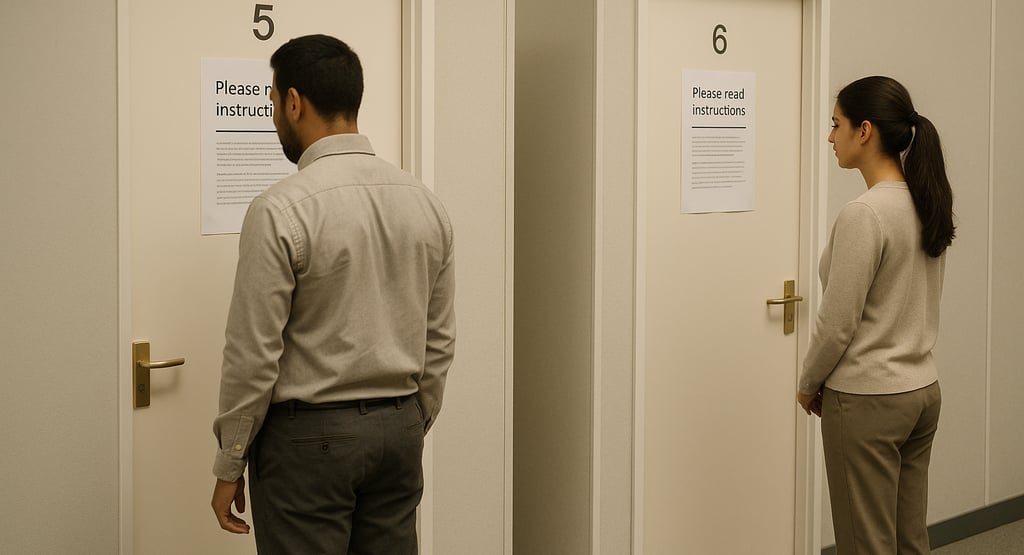

The Professional and Linguistic Assessments Board (PLAB) examination is a gateway for International Medical Graduates (IMGs) wishing to practise medicine in the UK. It is designed to ensure that doctors trained overseas have the appropriate skills and knowledge to provide safe and effective patient care within the NHS. The assessment is divided into two parts: PLAB 1 and PLAB 2.
PLAB 1 is a multiple-choice examination that tests applied medical knowledge, whereas PLAB 2 involves a practical assessment. PLAB 2 is an Objective Structured Clinical Examination (OSCE) that evaluates your ability to interact with patients, demonstrate clinical reasoning, and manage scenarios safely. The examination consists of 16 clinical stations and 2 rest stations. Each clinical station lasts 8 minutes, preceded by 1.5 minutes to move to the next station and read the instructions outside each examination room. The entire exam takes about 3 hours to complete.
The pass mark for PLAB 2 is not fixed - instead, it varies depending on the performance of candidates on the day. To succeed, candidates must meet or exceed the pass mark and pass a certain number of stations that is determined on the performance on the day.
Eligibility and Attempts
To attempt PLAB 2, you must have:
An acceptable overseas primary medical qualification (PMQ)
A valid PLAB 1 pass
PLAB 2 must be completed within 2 years of passing PLAB 1
Candidates are allowed a maximum of four attempts. The current cost of PLAB 2 in 2025 is £997.
Exam Format and Logistics
PLAB 2 is held only in Manchester, UK.
Instructions and patient details will be provided outside each exam cubicle.
At the start of every station, you must confirm your name and GMC number.
You will have 1 minute 30 seconds to move between rooms and read the instructions.
Some examiners may be observing remotely.
Results are published within one month of your exam date.
Skills Assessed
The GMC evaluates candidates across three main domains, each carrying equal importance:
Data Gathering, Technical, and Assessment Skills (4 marks)
This includes history taking, relevant physical examination, practical procedures and investigations leading towards a diagnosis.
Clinical Management Skills (4 marks)
Formulating differential diagnoses, explaining findings, and outlining safe management plans that are patient-centered.
Interpersonal Skills (4 marks)
Establishing rapport, demonstrating empathy, and maintaining a patient-centred approach.
Types of Stations
Most stations involve consultations with simulated patients. Some may be telephone consultations, while others may include a focus on conducting a physical examination on either a patient or a manikin. These scenarios test your ability to apply knowledge in real-world settings while maintaining professionalism and patient safety.


